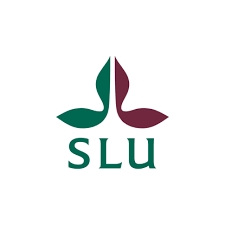RELOAD scientists graduated at Swedish University
 Mr. Ashenafi Chaka Tuffa and Mr. Tadesse Kenea Amentae from Ethiopia, both PhD students in RELOAD, celebrated an important achievement: They are now licentiates of the Swedish University of Agricultural Sciences in Uppsala.
Mr. Ashenafi Chaka Tuffa and Mr. Tadesse Kenea Amentae from Ethiopia, both PhD students in RELOAD, celebrated an important achievement: They are now licentiates of the Swedish University of Agricultural Sciences in Uppsala.
Mr Ashenafi Chaka Tuffa worked on ”Supply and Value Chain Analyses of Warqe Food Products in Relation to Post-harvest Losses”. Warqe is a banana-like multi-purpose crop (Ensete ventricosum) that is widely used in Ethiopia. Starchy food products are made from the plant’s stalk, whereas other plant parts are used as animal feed, medicine or for non-food applications, such as construction, packaging or handicrafts. Ensete is of high importance for food security, particularly for vulnerable population groups, and closely related to some cultural and social traditions of Ethiopia.
Mr. Chaka analysed the supply chain for two typical food products: Fermented starch (kocho) and a powdery by-product from processing called bulla. He identified the major supply chain actors and calculated losses that occurred at each link of the chain. Overall, the level of post-harvest losses was very high ─ around 45% for both products. These losses arise at various steps; during processing, transportation and storage. Additionally, the use of perishable packaging material has contributed to the degradation of these products.
The work of Mr. Tadesse Kenea Amentae (“Evaluation of Supply Chains and Post-harvest Losses of Selected Food Commodities in Ethiopia”) had a broader focus in that he looked at a range of products that are of particular importance for food and nutrition security in Ethiopia, including milk, teff and ensete products. Teff is a cereal typically grown in the Ethiopian highlands (Eragrostis tef). It is widely used to make flat breads and beer.
Losses in the milk and teff supply chains ranged between 14-16% and were thus lower compared to those described above for ensete products. Handling at collection points, the threshing process, packaging and processing are the main “hot spots” at which losses arise. They could thus serve as starting points for improvements. Moreover, relationships among the chain actors were mostly based on spot transactions, lacking long-term market orientation, mutuality and trust. Hence, the application of supply chain management (SCM) practices could potentially improve the overall supply chains and help reduce food losses.






